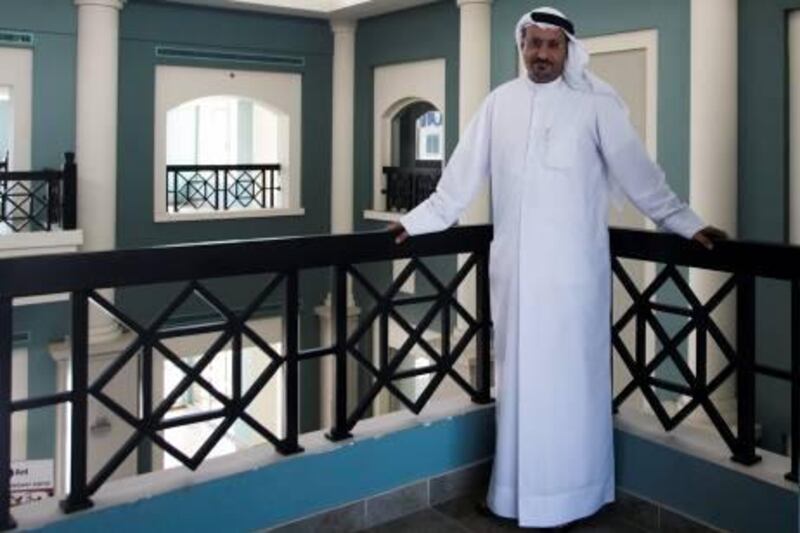DUBAI // Dubai needs more academic programmes that are designed to fill gaps created by the country's economy, according to the head of the emirate's biggest academic free zones.
Ayoub Kazim, the managing director of the education cluster at Dubai International Academic City and Knowledge Village, says the market is "saturated" with programmes including the master's in business administration (MBA) and neglecting key areas in which the country is developing, such as hospitality and tourism, transport, logistics and medicine.
"The provision of programmes in hospitality and tourism for example is a fraction of what is needed right now," he said. "It's been expected that by 2020 the workforce in the region will require 1.5 million people in the sector. For that we should be producing 100,000 graduates each year but we are graduating a fraction of that. The hospitality and tourism sector is booming all over the country too and it needs to be addressed. We need to focus on these areas that are contributing greatly to the GDP."
There are 51 higher education institutions in Dubai, 32 in its five free zones, including Dubai Healthcare City and Dubai International Financial Centre. Of the last batch of 25 applications from universities to open campuses in Dubai International Academic City or Knowledge Village - from countries including the United States, India and Norway - none were granted licences. Dr Kazim said it can be more important to look for quality of universities rather than quantity, and for the assurance that a university has a sustainable business model.
"Even under the current economic scenario, there are still 25 universities wanting to open in Dubai, which is quite positive," he said. Without research into where these needs are explicitly identified, Dr Kazim said it will be difficult to see great change. Mick Randall, an honorary research fellow at the British University in Dubai and now a freelance consultant, says government funded research is vital.
"There should be properly constituted bodies to institute dialogue between the government and industry about the latter's needs and the economic strategy of the government," he said. He said it is essential that the government have at least a voice, if not the final word, on the programmes provided in its country. Mr Randall said the market has become overloaded with MBAs because they are attractive to students who feel that they are a gateway to better jobs. The degree is also attractive to institutions for its recruiting results in the past 20 years.
Warren Fox, University Quality Assurance International Board chairman and executive director of higher education at the Knowledge and Human Development Authority, said research into the changing needs of the emirate has resulted in a working relationship with the institutions in the five free zones, which it oversees, to help expand the range of programmes on offer. "Existing campuses are being encouraged to bring programmes from their home campuses that could be of use to the Dubai economy. Hospitality and tourism, transport and logistics are certainly on our list of target areas."
Edwin Eisendrath, head of global education at Huron Consulting, a US company in Dubai, says employers need to kick-start the process, identifying the educational needs of future employees. "A lot of these programmes were developed in a different economy and at a slightly different time so it takes time to adjust. The economy in Dubai is changing and tourism is taking on a bigger importance than some of the other aspirations they had three or four years ago."
Dr Hassan Galadari, assistant professor at UAE University and a practising dermatologist in Dubai, says he does not agree there is a shortage of medical programmes. "There is an all girls one already [Dubai Medical College], one in Al Ain, one in RAK, Sharjah and Ajman with a second in the plans and one in the process of development in Abu Dhabi. That's a potential of six medical schools catering a radius of about 200 kilometres."
Mr Randall added: "It would seem to me that most of the subjects mentioned are well represented. In fact, hospitality and tourism is very well supplied with undergraduate courses, for example at the Emirates Academy of Hospitality Management."






